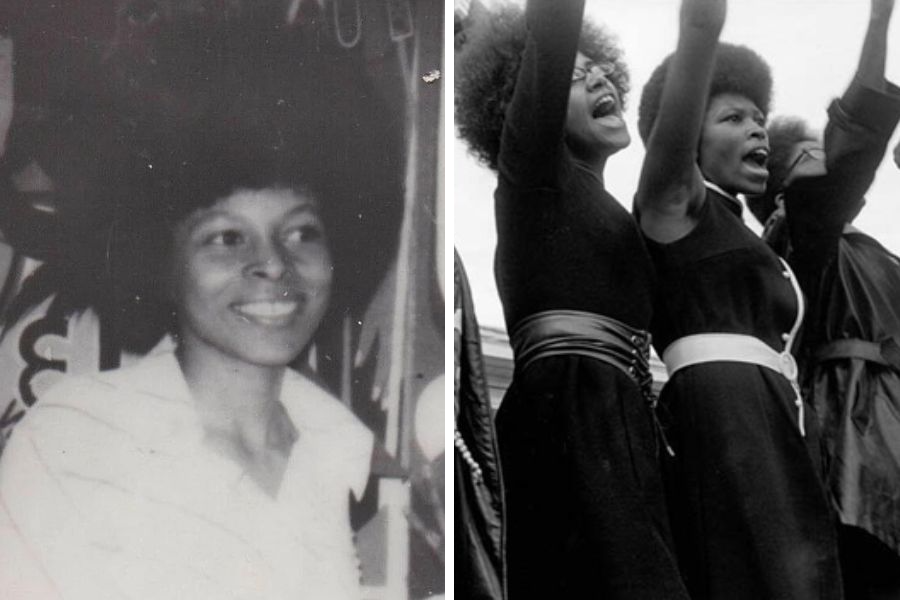The death of Assata Shakur in Cuba has sparked worldwide discussions regarding activism, defiance, and the enduring influence of one of the most debated personalities of the 20th century.
Assata Shakur, a figure whose life has been at the heart of political discussions and cultural stories, has passed away in Cuba, where she had been residing in exile for many years. Recognized as rapper Tupac Shakur’s godmother, she was also a symbol representing the blend of activism, revolution, and dispute. Her passing signifies the closure of a historical era that spanned across countries, generations, and political movements.
Born JoAnne Chesimard in Queens, New York, she emerged as a prominent member of the Black Panther Party and later the Black Liberation Army during the 1960s and 1970s, a period of intense social and political unrest in the United States. Her involvement in these organizations made her both a symbol of resistance for some and a wanted figure for others. She was eventually convicted in connection with the death of a New Jersey state trooper in 1973, a case that drew enormous attention and polarized public opinion. In 1979, she escaped from prison and fled to Cuba, where she was granted asylum by the government, remaining there until her death.
A life marked by activism and controversy
Shakur’s life was deeply intertwined with the struggles for racial equality and justice in America. As a young woman, she was drawn to the Black Panther Party’s message of empowerment and community protection. She dedicated her efforts to fighting systemic oppression, working in community programs that sought to address poverty, healthcare, and education in underserved areas.
However, her activism soon collided with the U.S. justice system. Shakur was implicated in several violent incidents associated with the Black Liberation Army, culminating in her arrest and conviction. To her supporters, she was a victim of political persecution, targeted by government agencies determined to dismantle Black liberation movements. To her critics, she was a dangerous militant who used violence to advance her cause. This dual perception followed her throughout her life, ensuring that she remained a polarizing figure long after she left the United States.
Her daring prison escape in 1979 added to her legend. Assisted by allies, she managed to flee a maximum-security facility and make her way to Cuba. Once there, she built a life in exile, protected by the Cuban government and admired by sympathizers worldwide. Her presence in Cuba became a source of tension between the U.S. and Cuban governments, as Washington repeatedly demanded her extradition, while Havana consistently refused.
Impact on culture and link to Tupac Shakur
The impact of Assata Shakur goes further than just politics and activism, influencing both cultural and artistic realms. She became an inspiration and emblem for artists, writers, and musicians who identified in her narrative a mirror of resistance and challenge. Her autobiography, released in the 1980s, provided a personal insight into her life and became a key resource for those examining the history of the Black liberation movement.
Her link to hip-hop was solidified via her bond with her godson, Tupac Shakur. The musician frequently touched on themes of opposition, inequity, and perseverance in his songs, themes that mirrored Assata’s experiences. For numerous individuals within the hip-hop community, she embodied a connection between the radical spirit of the 1960s and 1970s and the societal struggles of the 1990s and future generations.
The resonance of her life story was not limited to the United States. Across the world, activists and thinkers looked to her as an example of resilience in the face of state power. Her name appeared in protest chants, songs, and speeches, becoming part of a global vocabulary of resistance.
The debate over her legacy
With her death, discussions about Assata Shakur’s legacy have resurfaced, reflecting the complexity of her life and choices. For some, she remains a revolutionary who fought against systemic racism and oppression, a woman who risked everything for her beliefs. For others, she is remembered as a convicted fugitive whose actions caused irreparable harm.
The U.S. government had long classified her as one of the most wanted fugitives, even offering a significant reward for her capture. Yet despite this, she managed to live openly in Cuba, participating in academic and cultural events while remaining beyond the reach of American authorities. This reality underscored the enduring political divide between the two nations and highlighted the global dimensions of her story.
In Cuba, Shakur was often portrayed not as a criminal, but as a political refugee who had escaped persecution. Her death there marks the conclusion of an extraordinary exile, one that became a symbol of defiance for some and frustration for others.
A long-term influence on history
The passing of Assata Shakur marks the end of a life that was both impactful and contentious. She navigated through the realms of activism, creativity, politics, and culture, influencing discussions that persist even now. The issues her narrative brought up—regarding justice, defiance, and the strength of conviction—are still open-ended, guaranteeing that her legacy will persist in discussions about past events and societal transformation.
For those who backed her, Shakur symbolized bravery and resistance, a voice that stood up to oppression and remained unsilenced. To her critics, she embodied a bygone period characterized by conflict and discord. No matter the viewpoint, her impact is undeniable.
Her death in Cuba does not eliminate the complexities of her existence; on the contrary, it highlights them, serving as a reminder to the world that individuals such as Assata Shakur cannot be easily categorized. She simultaneously embodied the roles of an activist, a fugitive, a cultural icon, and a contentious character—elements that made her narrative captivating and her legacy lasting.
As she continues to look back on her life, one thing is certain: Assata Shakur’s legacy will endure not only due to her place in history but also because of the lasting discussions she initiated on justice, resistance, and the concept of freedom.




